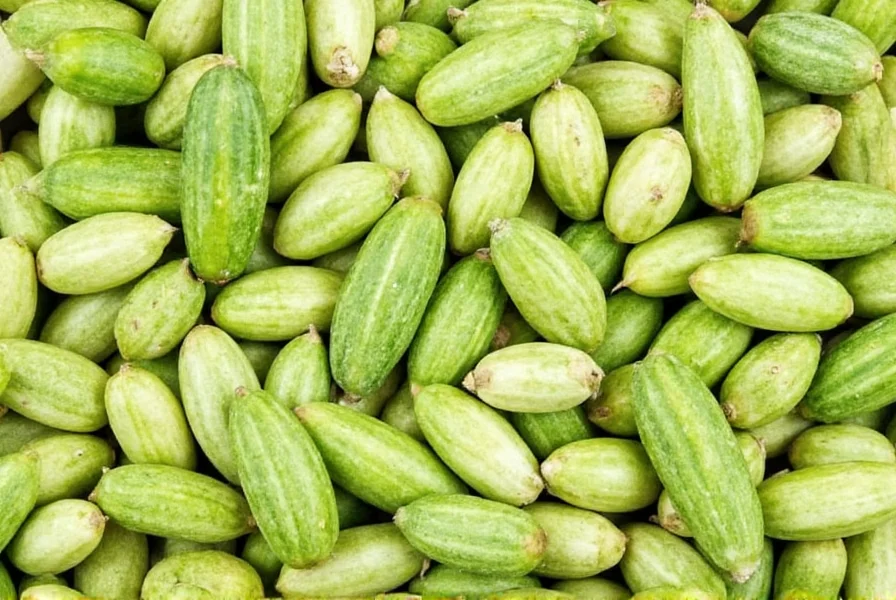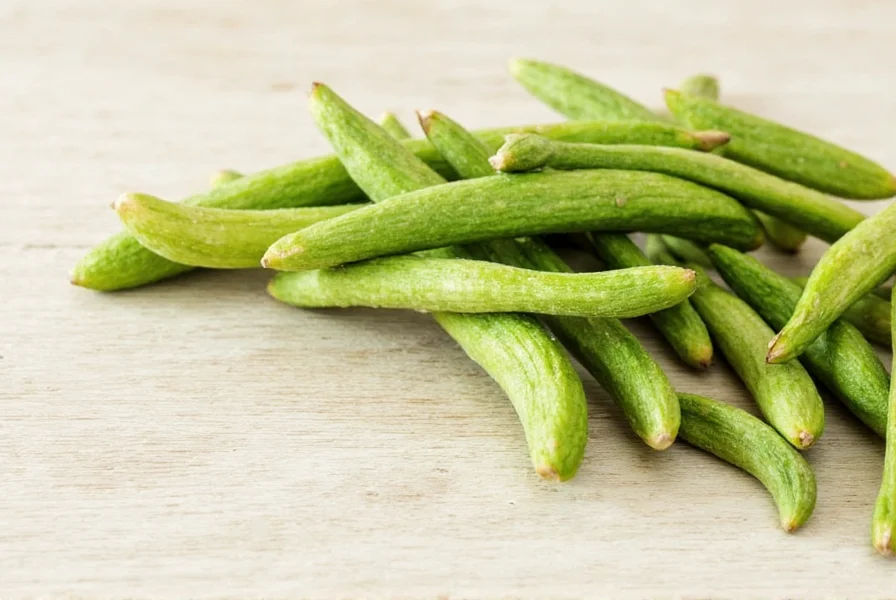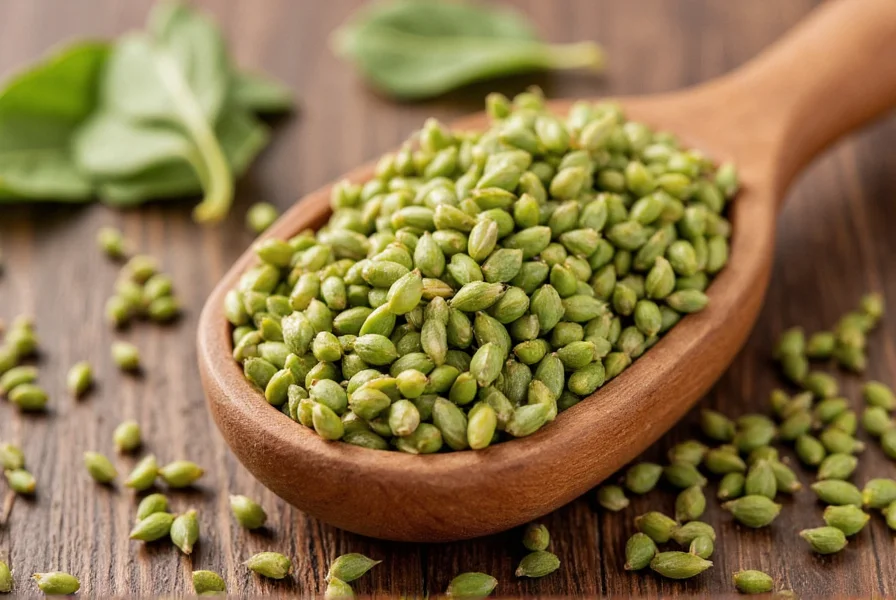Cardamom, one of the world's most ancient and valuable spices, has been used for centuries in traditional medicine systems across Asia and the Middle East. This aromatic seed pod from the Elettaria cardamomum plant contains powerful bioactive compounds that modern science continues to validate for their health-promoting properties. Unlike many wellness trends, cardamom's benefits are supported by growing scientific evidence while remaining accessible as a culinary ingredient rather than a supplement.
Understanding Cardamom Varieties and Composition
Before exploring specific benefits, it's important to distinguish between the main types of cardamom:
| Type | Scientific Name | Key Characteristics | Primary Growing Regions |
|---|---|---|---|
| Green Cardamom | Elettaria cardamomum | Bright green pods, delicate flavor, highest medicinal value | India, Guatemala, Tanzania |
| Black Cardamom | Amomum subulatum | Larger, smoky flavor, used more in savory dishes | Nepal, Bhutan, North India |
| White Cardamom | Bleached green cardamom | Milder flavor, primarily aesthetic use | Processed from green variety |
Green cardamom contains the highest concentration of beneficial compounds, particularly terpenes like cineole (1,8-cineole), limonene, and linalool, which contribute to its therapeutic properties. These compounds work synergistically to provide the health effects researchers have documented.

Scientifically-Supported Health Benefits of Cardamom
Powerful Antioxidant Properties
Cardamom ranks among the most antioxidant-rich spices, with an ORAC (Oxygen Radical Absorbance Capacity) value significantly higher than many common foods. A 2020 study published in the Journal of Food Science and Technology found that cardamom extract demonstrated 90% free radical scavenging activity in laboratory tests. The spice contains flavonoids, polyphenols, and terpenes that combat oxidative stress—a key factor in chronic disease development.
Regular consumption of cardamom, whether as whole pods, ground spice, or tea, contributes to your daily antioxidant intake. Unlike isolated antioxidant supplements, cardamom provides these compounds in their natural matrix alongside dietary fiber and other beneficial phytochemicals.
Digestive Health Support
Traditional medicine systems have long used cardamom for digestive issues, and modern research supports these applications. Studies indicate that cardamom may:
- Stimulate digestive enzyme production
- Reduce symptoms of bloating and gas
- Help prevent stomach ulcers by inhibiting H. pylori bacteria
- Improve gut motility and reduce constipation
A 2019 clinical trial with 50 participants experiencing functional dyspepsia found that those who consumed cardamom extract twice daily reported significantly less abdominal discomfort compared to the placebo group after four weeks. The researchers attributed these effects to cardamom's ability to modulate gut microbiota and reduce inflammation in the digestive tract.
Cardiovascular Benefits
Emerging research suggests cardamom may support heart health through multiple mechanisms. Animal studies and limited human trials indicate that cardamom compounds may help:
- Lower blood pressure by promoting vasodilation
- Reduce LDL ("bad") cholesterol levels
- Prevent blood platelet aggregation that can lead to clots
- Improve lipid metabolism
A notable 12-week study published in the Indian Journal of Biochemistry and Biophysics followed 20 adults with stage 1 hypertension. Participants who consumed 3 grams of cardamom powder daily showed an average reduction of 8.6 mmHg in systolic blood pressure and 5.1 mmHg in diastolic pressure, along with improved antioxidant status.
Anti-Inflammatory Effects
Chronic inflammation underlies many modern diseases, and cardamom contains compounds that may help modulate inflammatory pathways. Research shows that 1,8-cineole, the primary component of cardamom essential oil, inhibits the production of pro-inflammatory cytokines like TNF-α and IL-6.
These anti-inflammatory properties make cardamom potentially beneficial for conditions like arthritis, though more human studies are needed. Incorporating cardamom into your diet represents a food-as-medicine approach to managing inflammation without pharmaceutical side effects.
Oral Health Applications
Cardamom's antimicrobial properties have made it a traditional remedy for oral health. Scientific analysis confirms that cardamom extract demonstrates inhibitory effects against common oral pathogens including Streptococcus mutans and Candida albicans.
Chewing cardamom pods has been shown to reduce bad breath by neutralizing volatile sulfur compounds. Some natural toothpaste formulations now include cardamom for its dual action as both an antimicrobial agent and flavoring component.
Respiratory Support
The cineole in cardamom acts as a natural expectorant, helping to loosen mucus in the respiratory tract. This explains cardamom's traditional use in Ayurvedic and Traditional Chinese Medicine for coughs and congestion.
While not a replacement for medical treatment of respiratory conditions, adding cardamom to warm beverages during cold season may provide symptomatic relief. The spice's anti-inflammatory properties may also help reduce airway inflammation associated with asthma.
Nutritional Profile of Cardamom
Per teaspoon (2 grams) of ground cardamom provides:
- 18 calories
- 4 grams dietary fiber (14% of daily value)
- 205 mg potassium
- 56 mg calcium
- 0.7 mg iron (4% of daily value)
- Significant amounts of magnesium, manganese, and selenium
Cardamom also contains trace amounts of vitamins A, C, and several B vitamins. While you wouldn't consume enough to meet daily vitamin requirements, these compounds contribute to the spice's overall health-promoting profile.
How to Incorporate Cardamom for Maximum Benefits
To reap the health advantages of cardamom, consider these practical applications:
- Cardamom tea: Crush 3-4 pods and steep in hot water for 10 minutes
- Smoothie booster: Add ¼ teaspoon ground cardamom to fruit smoothies
- Healthy baking: Substitute for部分 sugar in recipes with cardamom's natural sweetness
- Rice and grain dishes: Add whole pods while cooking for subtle flavor
- Coffee enhancement: Mix a pinch of cardamom with coffee grounds before brewing
For maximum potency, use freshly ground cardamom from whole pods rather than pre-ground spice, as the volatile compounds degrade over time. Store whole pods in an airtight container away from light and heat.

Potential Side Effects and Considerations
Cardamom is generally recognized as safe when consumed in culinary amounts. However, some considerations include:
- May interact with blood-thinning medications due to potential anticoagulant properties
- Large medicinal doses could potentially lower blood pressure too much in sensitive individuals
- Rare allergic reactions, particularly in people sensitive to other members of the ginger family
- Pregnant women should consume in moderation as extremely high doses may stimulate uterine contractions
As with any natural remedy, consult your healthcare provider before using cardamom therapeutically if you have existing health conditions or take medications regularly.
Cardamom Compared to Similar Spices
While many spices offer health benefits, cardamom has a unique profile:
- vs. Cinnamon: Cardamom has stronger antioxidant capacity but less impact on blood sugar regulation
- vs. Turmeric: Cardamom lacks curcumin's potent anti-inflammatory effects but offers broader digestive benefits
- vs. Ginger: Both support digestion, but cardamom has more pronounced respiratory benefits
- vs. Cloves: Cardamom has less eugenol (the main active compound in cloves) but offers more diverse flavor applications
For maximum health benefits, consider incorporating multiple spices into your diet rather than focusing on any single one.
Conclusion: Realistic Expectations for Cardamom Benefits
Cardamom offers genuine health advantages supported by growing scientific evidence, but it's not a miracle cure. As part of a balanced, whole-foods diet, regular consumption of cardamom can contribute to better digestive health, reduced oxidative stress, and potentially improved cardiovascular markers. The key is consistent, moderate use as a culinary spice rather than expecting dramatic results from occasional consumption.
When selecting cardamom, choose organic varieties when possible and prioritize whole pods over pre-ground spice for maximum potency. By understanding both the proven benefits and realistic limitations of this ancient spice, you can make informed decisions about incorporating it into your wellness routine.
Frequently Asked Questions
What is the most effective way to consume cardamom for health benefits?
The most effective method is using freshly ground cardamom from whole pods in culinary applications. For digestive benefits, steeping crushed pods in hot water to make tea provides excellent bioavailability of active compounds. A daily intake of 1-3 grams (about ½ to 1½ teaspoons) of ground cardamom or 5-10 pods provides sufficient amounts for health benefits without risk of side effects for most people.
Can cardamom help with weight loss?
While cardamom alone won't cause weight loss, it may support healthy metabolism as part of a balanced diet. Some animal studies suggest cardamom extract might improve lipid metabolism, but human evidence is limited. Cardamom's real value for weight management comes from its ability to add flavor without calories or sugar, making healthy foods more enjoyable. It's best viewed as a supportive element in a comprehensive weight management approach rather than a standalone solution.
How does cardamom compare to other spices for antioxidant content?
Cardamom ranks among the top antioxidant-rich spices, with an ORAC value of approximately 130,000 μmol TE/100g. This places it higher than cinnamon (26,753) and ginger (28,800), though slightly below cloves (290,283) and turmeric (159,277). What makes cardamom particularly valuable is its diverse antioxidant profile, containing multiple types of compounds (flavonoids, terpenes, polyphenols) that work through different mechanisms to combat oxidative stress.
Are there any specific health conditions where cardamom shows particular promise?
Research shows particular promise for cardamom in supporting digestive health, especially for functional dyspepsia and bloating. Preliminary studies also suggest potential benefits for hypertension management and oral health due to its antimicrobial properties. However, it's important to note that cardamom should complement, not replace, conventional medical treatments for specific health conditions. Most evidence comes from laboratory and animal studies, with limited but growing human clinical trials.
How long does it take to experience benefits from regular cardamom consumption?
The timeframe varies by benefit. Digestive improvements may be noticeable within days of regular consumption (such as in tea form). Antioxidant and anti-inflammatory effects build gradually over weeks to months of consistent use. Blood pressure improvements observed in studies typically appeared after 8-12 weeks of daily consumption. Like most dietary interventions, cardamom works best as part of a long-term healthy lifestyle rather than providing immediate dramatic results.











 浙公网安备
33010002000092号
浙公网安备
33010002000092号 浙B2-20120091-4
浙B2-20120091-4